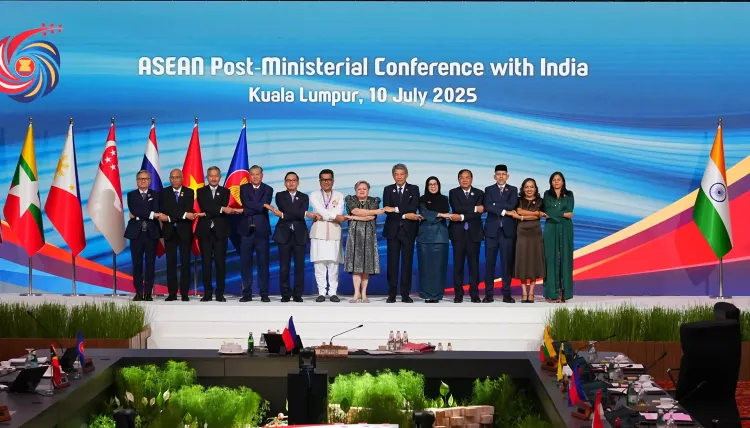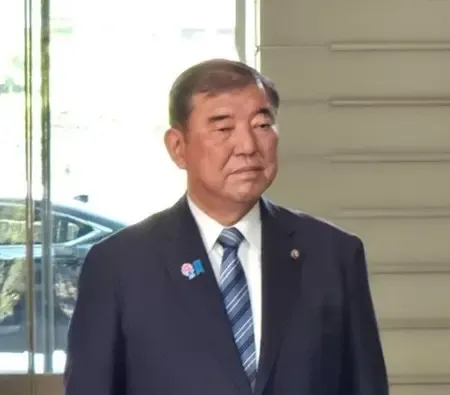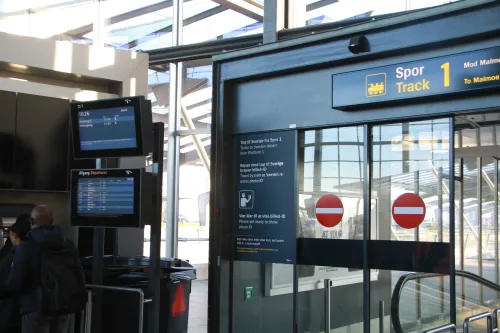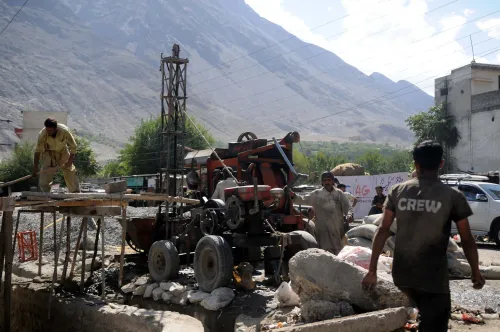How Does ASEAN View RCEP Expansion as a Boost for Economic Linkages?

Synopsis
Key Takeaways
- RCEP expansion is crucial for strengthening ASEAN's economic ties.
- New members like Hong Kong, Sri Lanka, Chile, and Bangladesh are looking to join.
- ASEAN and GCC are collaborating on economic initiatives.
- The RCEP Support Unit is operational to assist the Joint Committee.
- Regional biosafety and biosecurity efforts are underway.
Kuala Lumpur, Sep 25 (NationPress) The economic ministers from the Association of Southeast Asian Nations (ASEAN) have expressed that the enlargement of the Regional Comprehensive Economic Partnership (RCEP) membership is set to further bolster and broaden its economic connections with international partners.
In a collaborative statement released following the 57th ASEAN Economic Ministers (AEM) Meeting held here on Wednesday (local time), the ministers acknowledged the interest shown by Hong Kong (China), Sri Lanka, Chile, and Bangladesh to join the RCEP Agreement. They urged officials to hasten discussions to initiate the accession process as swiftly as possible.
Furthermore, the meeting highlighted, "The full operationalisation of the RCEP Support Unit is welcomed along with its initiatives to assist the RCEP Joint Committee and its affiliated bodies."
The RCEP, recognized as the world’s most extensive free trade agreement to date, encompasses 10 member states of ASEAN and five partners involved in free trade agreements, namely China, Japan, South Korea, Australia, and New Zealand, according to reports from Xinhua news agency.
The ministers also approved the Joint Declaration on Economic Cooperation between ASEAN and the Gulf Cooperation Council (GCC), which was embraced during the second ASEAN-GCC Summit on May 27, advocating for sectoral collaboration and a joint feasibility study on a possible ASEAN-GCC Free Trade Agreement.
The AEM and related meetings are being conducted from September 22 to 26.
Earlier this month, officials from ASEAN member nations and partner countries gathered in Laos to strategize and develop an action plan based on the ASEAN leaders' declaration aimed at enhancing regional biosafety and biosecurity.
They participated in the second meeting focused on the formation of the ASEAN Network on Biosafety and Biosecurity, which is part of a regional initiative to fortify preparedness and response to potential biological threats.
During this meeting, attendees defined regional priorities, clarified roles and responsibilities, and appointed lead implementers and partners to facilitate coordinated efforts in the prevention, detection, and response to biological threats, as reported by the Lao Ministry of Health.









